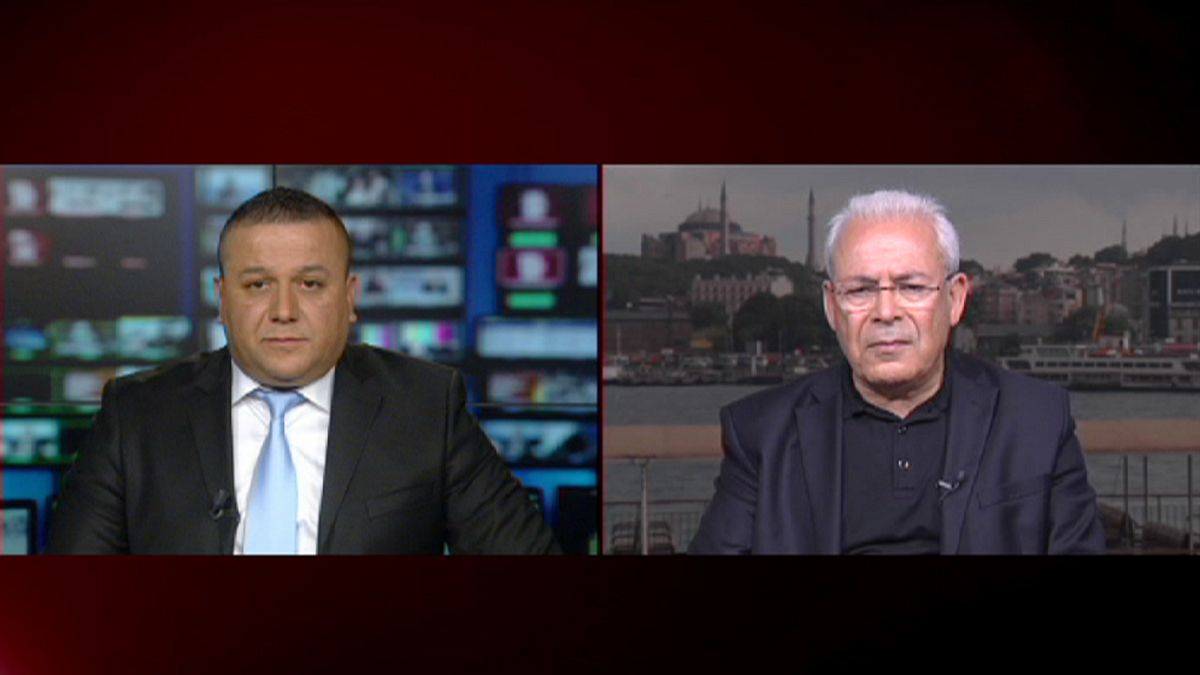In Syria’s presidential election this June 3, the incumbent Bashar al-Assad strolled up to the ballot box looking relaxed.
Yet since the civil war began in 2011, the death toll has swollen to more than 150,000, nearly three million refugees have fled abroad; double that are displaced internally.
Still, Assad claims these are free elections.
For a gloss of credibility, contending against him for the presidency, two other supposed candidates ran, little-known MPs Hassan al-Nouri and Maher Hajjar.
The opposition made it clear it would have no part in what was presented as the first multi-candidate election in the four decades since the Ba’ath party came to power in a coup.
Critics globally condemn the exercise as propaganda, at best.
Not far from the capital Damascus, fighting and destruction continued.
In the divided city of Aleppo, the pro-Assad half cast its ballots. The anti-Assad side call it an election awash with blood.
On the face of things, 15 million people were called to vote, but only those in areas controlled by the army could. They did so with observers from Iran, Russia and North Korea watching. This meant voting in only 40 percent of Syria.
In spite of desertion by some members of his armed forces, Assad’s army is firmly enmeshed with his regime. The rebels are inadequately armed. He has been successful isolating them and cutting off food.
In 2012, Assad got a new constitution passed that would open the way for presidential candidates if they could get the backing of 35 members of parliament (out of a total of 250). Assad’s party holds two thirds of the assembly’s seats.
When his ruler father Hafez al-Assad died in 2000, the son slipped into the role. A referendum was held, for the people to endorse this. Previously heading for a career in ophthalmology, he had been groomed for power late, only after his older brother Bassel was killed in a car crash.
Today, telling the Syrians they get to choose is new and therefore alien.
Furthermore, only 200,000 refugees within the country, out of the total of millions inside and out, were entitled to vote. There are pro-Assads who were outside and who crossed the border to get back in to find a polling station.
Other refugees were pressured to cast their ballots but refused.
As for opinion in foreign capitals, the British called it “a grotesque parody of democracy”. NATO called the election “a farce”.
Defying them, Assad is likely to be heading for a third seven-year term in office.
Alternative voice Burhan Ghalioun is a Syrian sociologist and former president of the Syrian opposition Transitional National Council. He is currently a member of the Syrian National Coalition. We spoke to him in Istanbul.
Belaïd Mekious, euronews: “Dr Ghalioun, Syria today is organising the first pluralist election in its history — elections for which it seems the results are already decided, given the state of war. What is the Syrian opposition’s position in these polls?”
Dr Burhan Ghalioun: “We can’t call them elections, but rather a theatrical comedy, in the true sense of the word. Everybody knows that Tehran is behind these elections, the Iranian regime, the guardians of the Islamic revolution. They intend to use Assad and the continuity of his rule as a bargaining chip in the next negotiations with the West over the nuclear standoff.”
euronews: “In spite of the call by the opposition in Syria and abroad to boycott the polls, the level of participation in the voting by those abroad was high, especially in Beirut. What’s your interpretation of that?”
Ghalioun: “Remember what happened in Hama, where the father of Assad destroyed half the city and killed around 40,000 people, a conflict that no other people in history have been through. Occurrences like that have become commonplace throughout the whole country today. After the slaughter that Assad perpetrated in Hama, people took to the streets saying they supported Assad, even those who had lost children and parents. They did that under threat. This is all show. Any totalitarian regime can do the same thing. That’s why I’m not surprised to see these people turning out to vote, in spite of themselves. They’ve grown used to it over the past 50 years. We can not say the Syrian people today have the freedom to choose. Under circumstance like this, these elections have no meaning.”
euronews: “The group Friends of Syria says that the Assad regime has lost all legitimacy, and that the Syrian National Coalition is the body that rightfully represents the people. On the other hand, some countries gave the green light for voting to be conducted on their territory. How do you explain this contradiction?”
Ghalioun: “I believe that the West and some Arab countries have chosen neither to support nor condemn Assad as a result of the blackmail and threats of violence and slaughter that the regime has kept up for 50 years.”
euronews: “President Obama in a speech last week made new promises of support for the Syrian opposition, and he underscored that the solution in Syria has to be political. Do you agree?”
Ghalioun: “Right from the start, we said that: that the only solution is political. The Syrian revolution always said it was a peaceful movement, open to dialogue during a transition period in which both sides accept the preservation of the institutions of an active state.”
